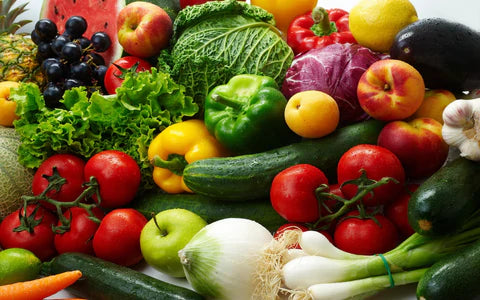Have your cake and eat it too?


Once in a while...maybe? Sugary desserts aside, a well-balanced, wholesome diet makes a huge difference in maintaining oral health. Here are four cardinal rules to keep in mind.
Eat whole, unrefined foods. Eat loads of fruits and vegetables in every brilliant color of the rainbow. Enjoy all varieties of raw, unsalted nuts and seeds. Choose whole grains rather than sugary cereals or pastries. Avoid the supermarket aisles where processed foods are lurking. Your teeth and gums will get their necessary daily workout on this fibrous, chewy fare. Firm, crunchy foods like apples, carrots, and celery help clean your teeth. All that extra chewing increases saliva production, helping keep your mouth on the alkaline side of the scale.
Avoid sugar. Sugary foods create tooth decay. If you’re reading this blog, it’s unlikely you consume much white sugar. You probably keep brown sugar to a minimum, too. But what about hidden sugars? You’ll find them in small print on labels of most processed foods: maltodextrin, dextrose, mannitol, corn syrup in all its forms, sorbitol, fruit-juice concentrate. Steer clear of stealth sugars by eating unrefined, whole foods.
Minimize snacking. Snacking creates a constant supply of acid in the mouth...unless of course you’re munching on apples, carrots, etc. Avoid constant sipping of sugary sodas or frequent sucking on candies and mints.What about sipping pure, unsweetened fruit juice? Sounds like a healthy choice, but actually it isn’t, because juice has a high concentration of sugar from the fruit. It’s much smarter just to eat the whole fruit.
Eat foods packed with mouth-healthy nutrients. Fresh fruits and vegetables are rich in vitamin C, so important for firm, pink gums. Vitamin A and zinc nourish, strengthen, and maintain healthy gums and mucous membranes. But if you want to heal injured oral tissues, greater quantities of food-based vitamin A and zinc are essential! Good sources of vitamin A are liver, fish and fish oil, whole-milk dairy products, egg yolk, meat and poultry, broccoli, dark green leafy vegetables, carrots, sweet potatoes, yams, winter squash, pumpkin, cantaloupe, watermelon, pink grapefruit, papaya, apricots, and seaweeds. Find zinc in seafoods (especially herring), meat, nuts and seeds, whole grains, green beans, lentils, and seaweeds.
More from:
Oral Health


